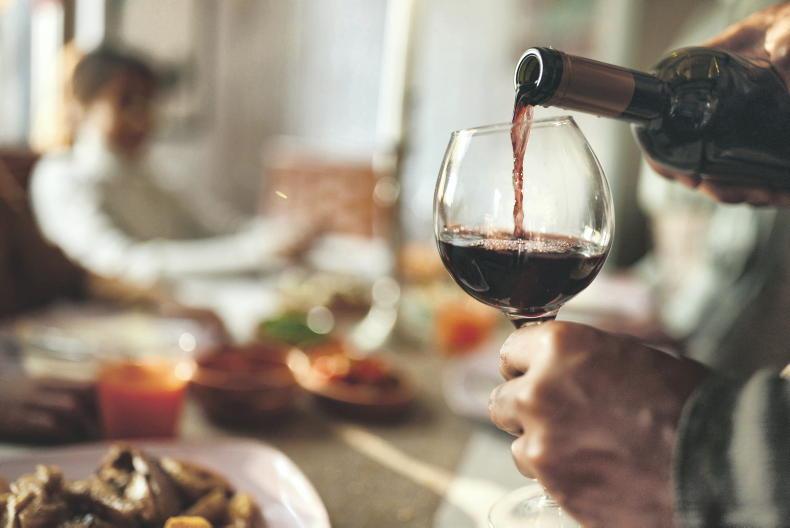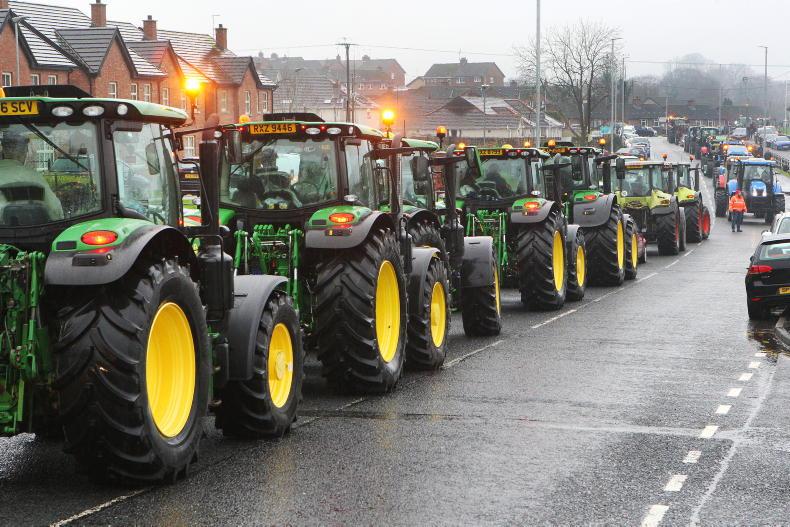In much the same way we expect food service professionals to comply with food safety practices, we should also consider food safety in our own kitchens – especially around the festive season when fridges are full and cooked meals might be sitting out for extended periods of time.
No one wants to be affected by a food-borne illness at the best of times – you certainly don’t want to be affected by one when you’re on your Christmas holidays. It’s important to understand the basics around safe food handling and cooking to avoid becoming ill yourself or potentially spreading illness to friends and family members.
According to Safefood, which promotes awareness around food safety and nutrition in Ireland, a roast turkey can quickly turn into a Christmas Day disaster if it’s not cooked properly.
In its annual survey, 55% of respondents said they are worried about cooking their turkey correctly while a further 30% are concerned about timing their turkey so that’s it’s ready with all the other dishes.
Turkey tips
Safefood offers a variety of online tools to help worried Christmas cooks, including its turkey cooking time calculator and its Christmas dinner food planner (find more tips and recipes at safefood.net).
When it comes to cooking a turkey, Safefood recommends using a good quality meat thermometer. Both digital and manual thermometers can be purchased in any major supermarket or kitchen shop. When cooked, the internal temperature of the turkey should read 75°C.
Take your turkey out of the oven and insert a clean thermometer probe into the thickest part of the bird.
In a whole turkey, the thickest part is between the breast and the leg. If you are cooking a turkey crown or a boned and rolled turkey, the thickest part is at the centre of the joint.
Always make sure you wash the meat thermometer thoroughly afterwards.
Top tips for food
Get your fridge festive ready: Ahead of the festive rush, Safefood recommends giving your fridge a good clean with warm soapy water. Then, rearrange the shelves to make space for your turkey – you should store it on the bottom shelf so it won’t cross contaminate other foods. Also, it’s important to avoid over-filling your fridge as it could affect the temperature.
Never wash your turkey: This is a terrible idea – it can spread harmful bacteria to your sink and to your kitchen surfaces. Properly cooking your turkey will kill any bacteria present. Handle your turkey as little as possible and remember to wash your hands and any surfaces/utensils with hot, soapy water before you touch anything else.
Those lovely leftovers: Always cover any leftovers and place in the fridge within two hours of cooking. Ensure any meat is cooled as quickly as possible. Once in the fridge, any leftovers should be eaten within three days. When re-heating food, ensure it is piping hot all the way through and only reheat once.
Temperature danger zone: Just like us humans, bacteria thrives with adequate heat and water. When food is at room temperature, or anywhere between 5-63°C, this is the perfect temperature for bacteria to grow rapidly.
This is why hot food should stay hot and cold food should stay cold. If you’re refrigerating hot food to eat later, bring it to room temperature within an hour and then refrigerate.
Cross contamination: Never store raw meats above fresh fruits and vegetables or prepared foods. Use clean dish clothes and hot, soapy water to wipe down food preparation surfaces.
Try to use separate cutting boards for raw meat, fish and fruits and vegetables. These are all good ways to avoid cross contamination and lower the risk of food-borne illness.
Read more
Dinnéar na Nollag
Whimsical desserts
In much the same way we expect food service professionals to comply with food safety practices, we should also consider food safety in our own kitchens – especially around the festive season when fridges are full and cooked meals might be sitting out for extended periods of time.
No one wants to be affected by a food-borne illness at the best of times – you certainly don’t want to be affected by one when you’re on your Christmas holidays. It’s important to understand the basics around safe food handling and cooking to avoid becoming ill yourself or potentially spreading illness to friends and family members.
According to Safefood, which promotes awareness around food safety and nutrition in Ireland, a roast turkey can quickly turn into a Christmas Day disaster if it’s not cooked properly.
In its annual survey, 55% of respondents said they are worried about cooking their turkey correctly while a further 30% are concerned about timing their turkey so that’s it’s ready with all the other dishes.
Turkey tips
Safefood offers a variety of online tools to help worried Christmas cooks, including its turkey cooking time calculator and its Christmas dinner food planner (find more tips and recipes at safefood.net).
When it comes to cooking a turkey, Safefood recommends using a good quality meat thermometer. Both digital and manual thermometers can be purchased in any major supermarket or kitchen shop. When cooked, the internal temperature of the turkey should read 75°C.
Take your turkey out of the oven and insert a clean thermometer probe into the thickest part of the bird.
In a whole turkey, the thickest part is between the breast and the leg. If you are cooking a turkey crown or a boned and rolled turkey, the thickest part is at the centre of the joint.
Always make sure you wash the meat thermometer thoroughly afterwards.
Top tips for food
Get your fridge festive ready: Ahead of the festive rush, Safefood recommends giving your fridge a good clean with warm soapy water. Then, rearrange the shelves to make space for your turkey – you should store it on the bottom shelf so it won’t cross contaminate other foods. Also, it’s important to avoid over-filling your fridge as it could affect the temperature.
Never wash your turkey: This is a terrible idea – it can spread harmful bacteria to your sink and to your kitchen surfaces. Properly cooking your turkey will kill any bacteria present. Handle your turkey as little as possible and remember to wash your hands and any surfaces/utensils with hot, soapy water before you touch anything else.
Those lovely leftovers: Always cover any leftovers and place in the fridge within two hours of cooking. Ensure any meat is cooled as quickly as possible. Once in the fridge, any leftovers should be eaten within three days. When re-heating food, ensure it is piping hot all the way through and only reheat once.
Temperature danger zone: Just like us humans, bacteria thrives with adequate heat and water. When food is at room temperature, or anywhere between 5-63°C, this is the perfect temperature for bacteria to grow rapidly.
This is why hot food should stay hot and cold food should stay cold. If you’re refrigerating hot food to eat later, bring it to room temperature within an hour and then refrigerate.
Cross contamination: Never store raw meats above fresh fruits and vegetables or prepared foods. Use clean dish clothes and hot, soapy water to wipe down food preparation surfaces.
Try to use separate cutting boards for raw meat, fish and fruits and vegetables. These are all good ways to avoid cross contamination and lower the risk of food-borne illness.
Read more
Dinnéar na Nollag
Whimsical desserts









SHARING OPTIONS